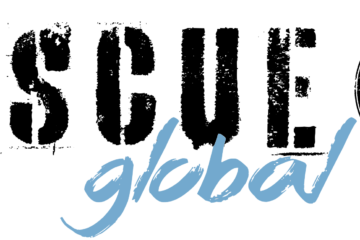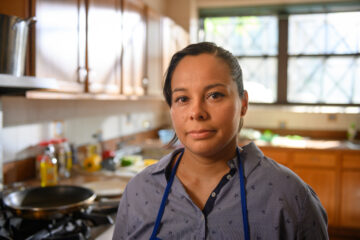For many years, I was living the so-called American dream, although not much about it was dreamy. Most of my time was spent commuting through Nashville traffic, working hard in a tiny office filled with files, and thinking about the quality time I was missing with my kids.
About a year before COVID arrived, I stumbled upon a blog post about “flexplace,” a concept where individuals used technology to work remotely. The digital age ushered in a new era of remote work opportunities, and many companies were starting to embrace remote work arrangements. I knew with the right approach, a remote program at my work would be a great fit. After creating a proposal in one of my Ed.D. courses at Trevecca, I took my plan to the decision-makers in my office, and they agreed to try it for a probationary period. Their decision changed the course of my entire life.
I finished my doctorate and sought a remote position at Trevecca. I was no longer confined to a physical office, a daily commute, or a rigid schedule. Instead, I had the flexibility to show up for my kids and be more productive in my life. My career took a new direction thanks to technology, and as a result, I was able to maximize my priorities. My journey is a testament to the transformative power of the digital age for career reinvention and personal fulfillment.
While my story highlights the benefits of technology, we all know technology also has its pitfalls. If we aren’t careful, technology can mask itself as the greatest companion, almost as good as any in-person relationship. Below are some reminders I use to ensure technology remains in its respective place in my life while allowing me to prioritize authentic, personal connections.
1. Benefits of Technology
When you think about the benefits of technology, what comes to mind? One of my favorite things about technology, in addition to the ability to work remotely, is the personal connection aspect. FaceTime, Marco Polo, texting, video conferencing, Loom—these platforms link us to one another and build relationships. We can see people’s faces, stay connected amidst our busy schedules and long distances, and have built-in flexibility to communicate on our own time.
I also appreciate how technology provides accountability and community. Countless apps exist to help us stay accountable, whether it’s exercise, healthy eating, mindfulness, daily Bible readings, or monitoring screen time. You can also find online communities for just about any hobby or interest imaginable, providing a place where we can check in with people, learn, and encourage one another. Technology has made the world more comfortable, faster, and smaller, and the benefits are numerous.
2. Effects of Technology on In-Person Interactions
Despite all its benefits, we know technology has less-than-appealing side effects. The digital age is hurting our focus and attention span—even students are having a hard time focusing these days. Basic writing skills and handwriting aren’t a priority anymore because of the early introduction of texting, emailing, and word processing. Critical thinking and problem-solving aren’t developed as they used to be, and we often don’t need to think through problems because we can immediately find answers online. People of all ages are spending too much time on social media, causing us to lose all concept of reality.
But if I had a least favorite part of technology, it would be the divide between online behavior and in-person life. Often the persona, skills, and communication we use online are different from what is needed for everyday life, creating a dichotomy that can be hard to overcome. Technology has a way of mimicking real life, tricking us into believing that it’s a substitute for in-person community. How do we fill in the gap and combat the negative effects of technology, while still enjoying the benefits?
3. Healthy Boundaries
When technology causes conflict in my life, I come back to these questions: what’s the bigger story, and what are my goals? Am I prioritizing technology instead of personal connections, or am I using it as a tool? What kind of example am I modeling for those around me?
If you desire to have a healthy relationship with technology while still prioritizing personal connections, I suggest taking time to ponder the above questions. Your answers will be unique to you, your goals, and your path in life. Reflecting on these questions should allow you to remember your goals and be able to set healthy boundaries.
If you need ideas on how to set boundaries, consider these suggestions: turn off notifications, create no-screen zones at home, find other things to do when you’re bored or tired, and schedule time away from the computer. Call a friend, schedule in-person meetings and lunches, and make time for your family. Taking small steps will create lasting habits that could improve the quality of your life.
4. Striking a Balance
I’ve found that if I set boundaries for myself, I can find a healthy balance between technology and my priorities. I often come back to what’s important in my life—family, friends, work, and hobbies. In-person community will always be a priority over technology. While much of my work involves using technology, I am a huge proponent of prioritizing in-person relationships.
My best friend, Julie, and I have been best friends for 30 years. We met in middle school and have made our friendship a priority ever since. Sure, technology has helped keep us close, but that’s not the main reason we are still friends—we are still close because we take the time to reach out, connect in person, and share our lives.
Life is better when you have good friends in your life. Make it a point to create memories with those around you—do exciting things together. Be your true self. Listen and communicate. Be intentional. Think of others before yourself. Respect boundaries. Sure, technology can help with these things, but it’s a means to an end. Use technology as a springboard to reach your ultimate goals.
Inspirational stories and meaningful relationships don’t happen by sitting on the couch and scrolling on our phones, or by spending too much time working behind a computer screen. What story are you writing for your life? As technology continues to evolve and provide solutions for our busy lives, let’s resolve to set healthy boundaries to keep technology in its respective place, so we can get into the world and connect with those around us.
Dr. Kristin Bledsoe is a leadership educator who serves as an academic dean for the School of Leadership and Interdisciplinary Studies at Trevecca Nazarene University in Nashville, Tennessee. She is also an associate professor, teaching in multiple programs from associate to doctorate level, with a strong understanding of online learning, teaching and engagement. She is also a graduate of the Tennessee Independent Colleges and Universities Association’s (TICUA) Executive Leadership Institute.













